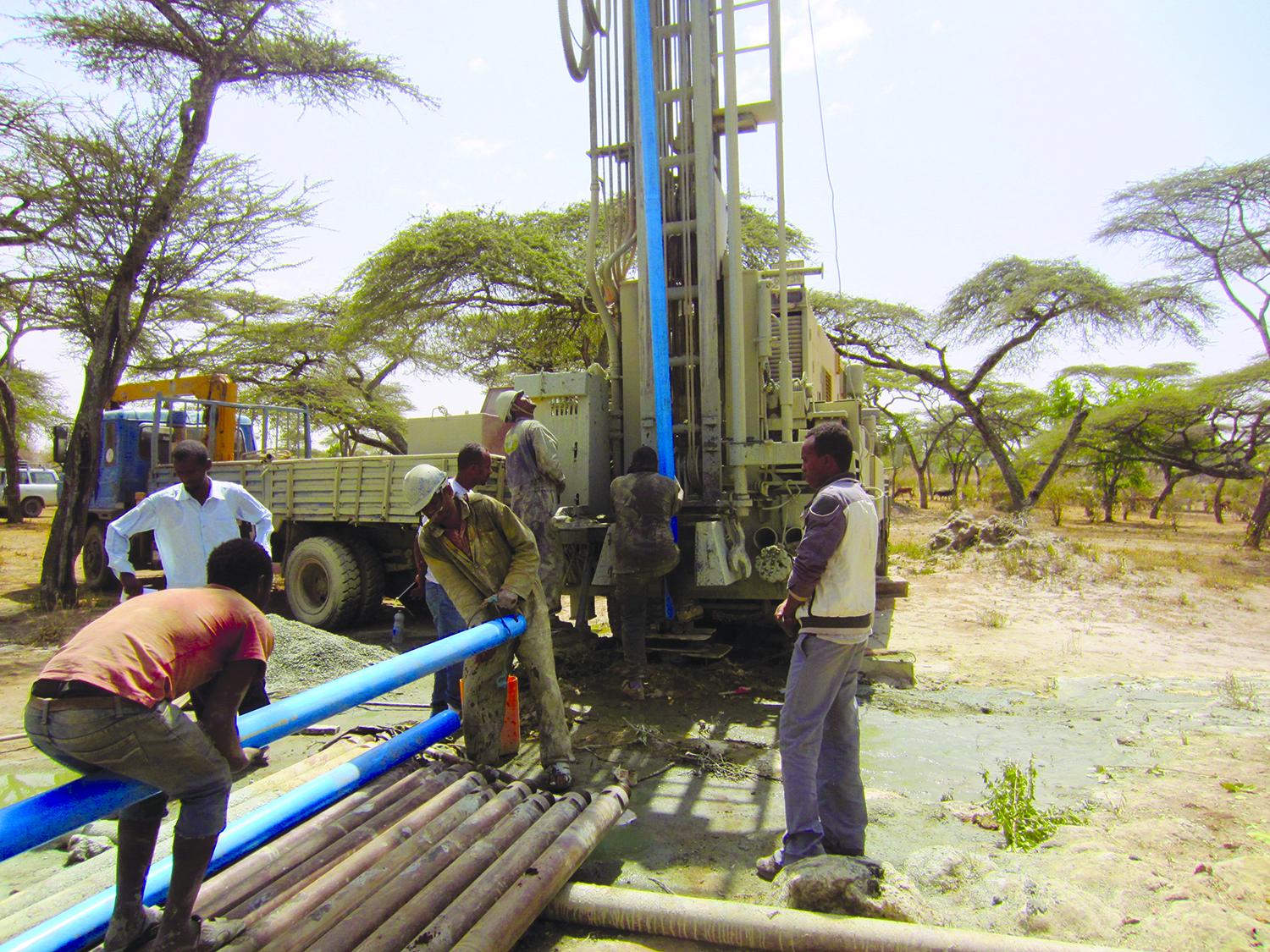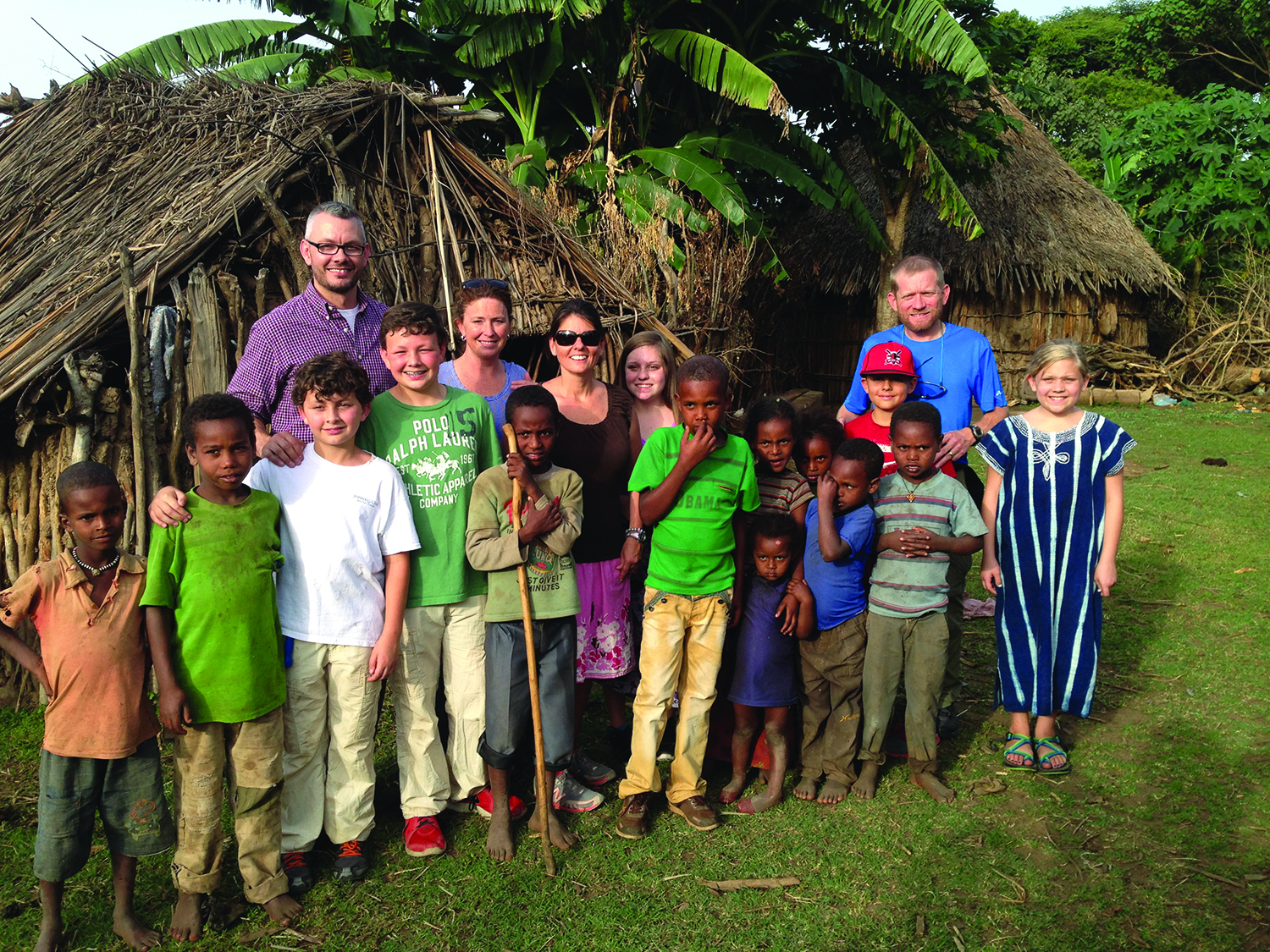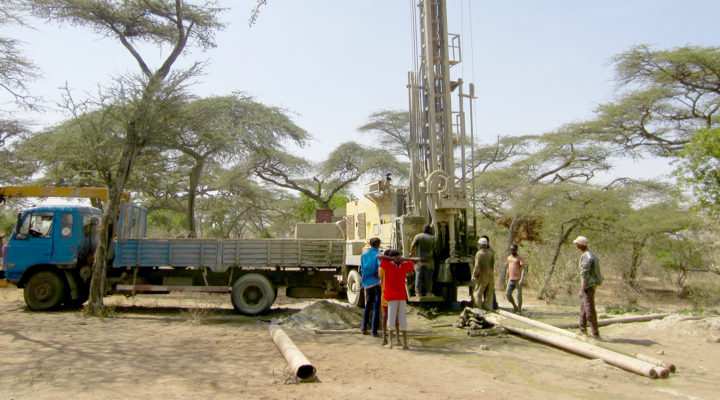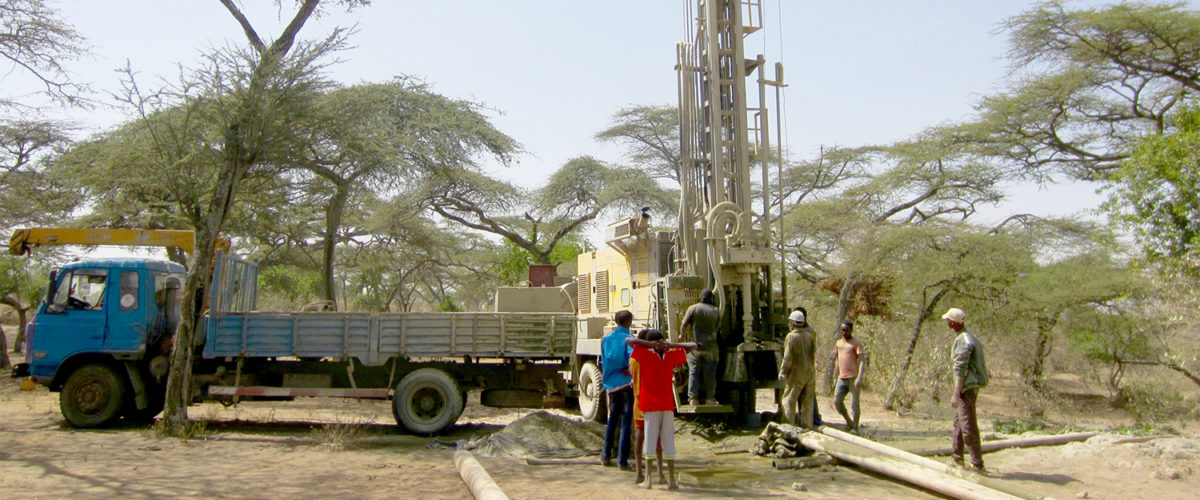Johns Creek, Ga., is situated on the banks of the Chattahoochee River, an area that once served as a meeting place between rival Cherokee and Creek people.
Tom Blue Wolf, a Creek descendent, told an interviewer the tribes were inspired by the great river and “agreed to make the Johns Creek area a ‘sacred place’ where all tribal families could feel safe during their peace talks.”
Today, the idea that water is a source of peace and healing is central to the work of Johns Creek Baptist Church, a Cooperative Baptist Fellowship partner congregation for more than 20 years.
“Our sustainable living projects flow out of water,” JCBC formations pastor Michael McCullar said. “Over 1 billion people in the world don’t have access to clean water, and 1.8 billion die from waterborne diseases each year.”
The church works with partners in the Dominican Republic and Ethiopia to fund and build clean water sources.
“We believe if you can solve the water problem, it opens the doors for so many things,” he said.
The church didn’t intend to establish long-term mission work in the Dominican Republic. Rather, it entered the country after the 2010 Haiti earthquake to serve as second-line responders. Before entering Haiti, the group flew to Santo Domingo and established a partnership with the Association of Baptist Churches in the Dominican Republic.
“The Baptist movement in the Dominican was started by Haitian Baptists,” McCullar explained. “We learned so much from them during those 17-hour van rides going from Santo Domingo to the earthquake’s epicenter in Haiti.”
McCullar has since made 28 trips to the island, working with local organizations.
“After three trips into Haiti, we began this natural relationship with the Association of Baptist Churches in the Dominican Republic. We began to work with their seminaries, hospitals and churches,” he said.
While traveling, McCullar saw the need for clean water sources. In small, isolated villages where residents work to cut and haul sugar cane for $3 per ton, many people don’t have access to inexpensive, safe water.
“I’ve been all over the island preaching and teaching, and there’s a horrible water situation,” he said. “Sometimes you choose between feeding your kids and having clean water.”

Workers drill for water in Africa, where Johns Creek Baptist Church of Alpharetta, Ga., is heavily involved in healthy water ministries. (Photo/CBF)
Johns Creek partnered with Atlanta firms, including Water at Work, and learned how to build water filtration systems. Next, they identified Dominican churches that could take over the projects. The reverse-osmosis filtration systems they use clean the water so it is not dangerous for communities to drink. Although they are expensive at $24,000 each, the church has been able to raise funds for four systems so far.
“We challenge the congregation if we’re putting in a clean water system…we say we’re all in this together,” McCullar explained. “Seven years ago, we needed to build a system, and giving has doubled every year since then. Last year we gave $160,000.”
Expansive presence
Johns Creek Baptist also works on water projects in the Horn of Africa. In June 2014, senior pastor Shaun King and his family traveled to Ethiopia to meet with CBF field personnel David and Merrie Harding. The purpose of the trip was to form a partnership with the Hardings, who lead an organization addressing the issues of water, sanitation, hygiene and poverty in Ethiopia. Together, they dig wells which support sustainable living groups mostly run by local women.
“Once the water comes in, sustainable living groups are what come after that. They’re community-based savings and credit groups that are able to create an economy and flow of money,” McCullar explained. “It all comes out of the fact that people are healthy and have access to clean water.”
Working with water-based initiatives helps JCBC members, both physically and spiritually, he said.
“We are active in providing water on two sides of the world. In a world that is thirsty for the truth in the Gospel and where people are dying every day because they don’t have access to clean water, we are doing what we need to do.”
“We are active in providing water on two sides of the world,” he said. “In a world that is thirsty for the truth in the Gospel and where people are dying every day because they don’t have access to clean water, we are doing what we need to do.”
The church intends to fund a water system in the Dominican Republic and a well in Ethiopia each year. They are also part of a coalition that builds schools in the Dominican Republic.
“Our goal is to build three or four classrooms each year,” McCullar said. “We go once each year to build on a school and again to install a clean water system.”
Although they see mission work as an essential part of their church’s identity, JCBC will only work with sustainable projects that can be replicated by local partners.
“We decided to never do a drive-by, or say we’re from the ‘civilized West’ and we have all the answers,” McCullar said. “Instead we say, ‘We’re here to help. What’s the best way to get started?’”
The church works to form lasting relationships with receiving churches and organizations.

Shaun King, pastor of Johns Creek Baptist Church, back row, far left, and members of his congregation pose with African children in a community aided by the congregation’s missional outreach efforts. (Photo/CBF)
“We are co-laborers. I go back during every trip and meet with the pastors and families,” he said. “We believe if you can’t have a long-term relationship, we probably shouldn’t be doing it. We’ve lived into the idea that this is enlarging the family of JCBC.”
JCBC also is engaged with the Arabic-speaking world.
McCullar wrote A Christian’s Guide to Islam, a book giving a brief history of Muslim formation, structure, beliefs, practices and goals. He has led international trips to Turkey, worked with Iranian Farsi-Persians in England and taught a course on the subject in former East Germany.
JCBC recently renewed a partnership with CBF field personnel Janée Angel who works with Arabic-speaking people in Antwerp, Belgium. She and her husband, Hary, have been aiding refugees from Syria and other Middle Eastern countries.
In addition to international projects, JCBC works with local and national partners in its state as well as border communities in Presidio, Texas.
“For the past 20 years our church has lived out a missional theme: locally, nationally and globally,” McCullar said. “We have mobilized people in 12 countries and 15 states. We want to have a missions footprint while maintaining our Baptist identity through supporting CBF.”
McCullar often uses the term “missional” to describe his church’s work.
“Missional is one of the greater misunderstood words,” McCullar said. “For me, it’s the intersection between missions and ministry. People thought it was only for pastors, but anything we do can be missional.”
Whether creating sacred, safe places through water projects abroad or volunteering at the neighborhood YMCA, Johns Creek Baptist Church is mobilized locally and globally.
“We are a church which hopes to be defined as a missional church — a church that has its own identity, but with classic Baptist roots,” McCullar said.
— This story was originally published by CBF at cbfblog.com.



